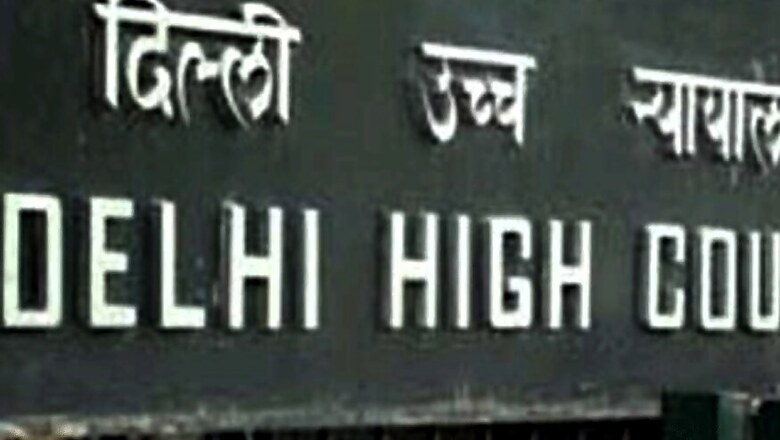
views
New Delhi: A Delhi High Court judge Monday recused himself from hearing alleged lobbyist Deepak Talwar's plea challenging his detention by Indian agencies after he was deported from the UAE.
Justice Siddharth Mridul, who was heading the bench, also comprising Justice Manoj Kumar Ohri, recused from hearing the matter without assigning any reason. "The matter will be heard by a bench in which one of us, Justice Siddharth Mridul is not a member," he said, adding "less said the better". The matter would be listed for hearing before another bench on March 14.
In his habeas corpus plea, Talwar has claimed that his arrest and custody from January 30 onwards was illegal detention. He has alleged that his fundamental rights were violated by the authorities.
A habeas corpus petition is a writ requiring a person under arrest to be brought before a judge or in court, especially to secure his release, unless lawful grounds are shown for his detention.
The bench had earlier sought the response of the Enforcement Directorate (ED) in which the agency had said that persons involved in large-scale money laundering and serious financial frauds have made it a practice to challenge various provisions of the PMLA, including the agency's power to arrest.
The ED had contended that a subterfuge was craftily designed by the "unscrupulous litigants" to bypass the exercise of filing a regular bail plea before the court concerned by directly seeking a habeas corpus writ or bail or anticipatory bail under the garb of challenging the constitutional validity of certain provisions of the Prevention of Money Laundering Act (PMLA).
It had alleged that Talwar, who was in judicial custody, acted as a middleman in negotiations to favour foreign private airlines, causing loss to national carrier Air India.
The ED had said Talwar was arrested by its competent officers under the PMLA and he was in custody pursuant to a valid remand order passed by a competent court, the jurisdiction of which was not in question, and that the habeas corpus writ was "not maintainable".
Talwar has claimed in his plea that when he was in Dubai, a travel ban was imposed on him by a court there in a commercial dispute, due to which he could not return to India despite repeated requests.
His counsel had earlier contended before the court that the government of India had "abducted" Talwar, adding that he was summoned to appear on February 4, but was picked up and not extradited.
He has sought quashing of the FIR against him under the PMLA and also to declare some provisions of the Act as unconstitutional and in violation of fundamental rights.
The ED had earlier told a trial court that it needed to interrogate Talwar to get the names of officials of the ministry of civil aviation, National Aviation Company of India Ltd and Air India, who favoured foreign airlines, including the Qatar Airways, Emirates and Air Arabia.
The agency had claimed that entities directly or indirectly controlled by the accused received exorbitant amounts from the Qatar Airways, Emirates and Air Arabia and submitted a chart of total USD 60.54 million received by firms directly or indirectly owned by Talwar between April 23, 2008 and February 6, 2009.
His role in some aviation deals during the previous Congress-led UPA regime is also under the scanner.



















Comments
0 comment